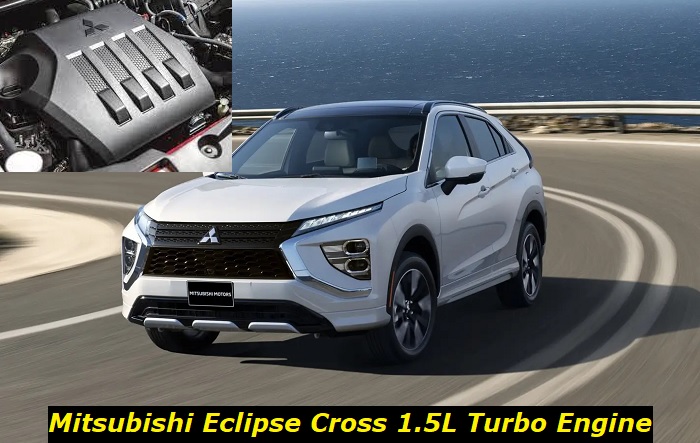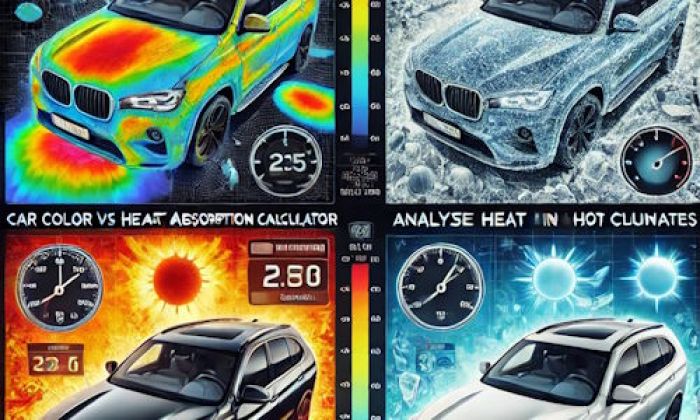While searching for a new topic for my article, I was roaming around the Mitsubishi dealership and suddenly saw the available new Mitsubishi Eclipse Cross. I test-drove this car in 2018 when it first came out and kind of liked it then. But I still haven't had a chance to learn more about its engine. So, it's time to cover this knowledge gap.
In this article, I will tell you about the 1.5L Turbo engine that powers the Mitsubishi Eclipse Cross and will focus on its advantages, specs, and common problems. Fortunately, we now have plenty of information to investigate, the engine has been here for a while. I will also pay attention to its overall longevity.

Key features and my opinion about the engine
- Production years:2017-now
- Average lifespan of 4B40:160,000-190,000 miles
- Fuel supply type:combined injection (direct+port)
- Power range:150-163 hp
- Fuel efficiency:good
- Engine block material:aluminum
- Engine reliability score:medium
- The most common problems:uneven RPMs when idling, complicated and expensive injection system, timing chain stretching.
What should you know about the 1.5L Turbo in the Eclipse Cross?
The Eclipse Cross comes with only one engine option in the US. This is weird because there is another great option of a 2.4L Hybrid engine (and I mean plug-in hybrid) in some markets. Why don't they offer this option in North America? I believe it would be much better in sales and in use.
The 1.5L Turbo engine codenamed 4B40 was engineered in 2017 and has only been installed in the Eclipse Cross model as of now. Not so many vehicles have been sold here, so I had to investigate the European Eclipse Cross sales and find information about how this engine works there. The overall engineering doesn't look bad at all.
Here are some things to consider:
- this is the 1.5-liter turbocharged gas engine with 4 cylinders and 16 valves offering 152 horsepower and 184 lb-ft of torque;
- the engine comes with the combined fuel injection - there are both direct and port injectors to prevent carbon buildup;
- the turbocharger is also equipped with the intercooler;
- the engine is all aluminum which is pretty common for such machines;
- when it comes to phasers, the 4B40 engine offers MIVEC camshaft phasers with variable valve timing and it's pretty good;
- the timing is maintained by the chain which seems to be more or less solid but still not eternal;
- the engine is coupled with the CVT transmission only, all Eclipse Cross models in the US come with AWD.
Overall, the engine seems really good. You may be concerned about the phasers but the MIVEC system proves to be reliable and not too problematic. The turbocharger is properly set and won't cause problems unless it's killed on purpose. Everything seems to work fine and the power is not extra high, so the engine wasn't squeezed to its limits.
Mitsubishi is good at making wonderful and reliable engines. But we see the impact of emission control changes. Unfortunately, this 1.5L Turbo engine will never be as reliable as those good old Mitsubishi engines that could work on whiskey and go a million miles with maintenance once every three years. Modern engines are not like that in any case.
How many miles will the 1.5L engine in the Eclipse Cross live?
The durability of the engine is one of the key factors when choosing a new car. Unfortunately, I can't say for sure that this engine will leave this world at a certain mileage, simply because there aren't so many Eclipse Cross models with high mileage available for statistics.
But given I know some common issues and can predict some other problems, I think the 1.5L 4B40 engine will last approximately 140-150 thousand miles. After that, you will be driving your car and expecting serious problems to happen.
Why so? Because the turbocharger is not eternal. The chain will most likely require attention at this time. The block will be worn out because the small yet powerful engine gets a lot of load and has to deal with a lot of potential issues.
Also, there is one more serious concern in terms of longevity - the CVT. This type of transmission is not the most reliable one. CVT units usually live about 100-120 thousand miles. Mitsubishi Eclipse Cross uses the INVECS-III CVT with 8-speed simulation. It's not bad and I would say that with proper maintenance it can go up to 150,000 miles. But if you aim to drive the car longer than that, you will have to think about replacement.
What are the common problems with the Eclipse Cross engine?
When it comes to problems, I can't clearly list the issues as I usually do and confidently say that you will experience these issues. The number of engines sold since 2018 all over the world is about 150,000 units and it's not a lot to form the opinion about the common issues.
But I want to discuss the problems that are often reported on forums and in dealerships:
1. Expensive to repair injection
While Mitsubishi basically solved the problem of direct injection carbon buildup by introducing additional port injectors, the injection system became very expensive to repair. I strongly recommend using high-quality premium fuel even though the vehicle's manual says you can use regular. This will save your fuel pumps and injectors from possible issues at high mileage.
Repairing these injectors and pumps may cost you a fortune, so you better avoid having issues with them.
2. MIVEC problems
The variable valve timing system is better than in many other cars. But it will likely be the MIVEC system that will kill your engine at some point or at least cause some serious problems. And while MIVEC is overall the reliable VVT system, it still poses danger to the timing chain, valves, camshafts, and also proper lubrication of the engine. After about 100,000 miles, the MIVEC system will require a lot of attention.
3. Timing chain issues
I read about several cases when these engines started rattling at about 100,000 miles. If you ignore the rattling and don't inspect the timing chain on time, it's more than possible that the stretched chain will jump. After that, the pistons may have a rough meeting with valves and the engine will be stuck with little chance to repair it without investing thousands of dollars.
Also, the timing chain kit is pretty expensive, and replacing it in this engine is not a simple job.
4. Vibration and rough work
Overall, this is not the smoothest engine in the world. It initially works with some vibration. I had a chance to test-drive a diesel Eclipse Cross in Europe and it seemed to be much smoother than the 1.5L Turbo available in the US. Vibrations are not a big deal but over time they will lead to additional issues with parts like the turbocharger and also some clamps and electrical connections that just may go loose.
5. CVT issues
Although it isn't part of the 4B40 engine, the CVT has a lot of influence on the overall durability of the vehicle. So, at about 120,000 miles you can start expecting some issues with this transmission. They rarely can live longer than 150,000 miles and repairing the transmission is too expensive.
Almost any problem with the transmission leads to the new valve body which is extremely expensive. Also, at mileage over 120,000 miles, repairing the CVT is not lucrative - you will want to replace it with a new one which will cost you a fortune.
Can you prolong the life of the 1.5L Turbo engine?
There are several things you can do to drive your Eclipse Cross much longer:
- change the oil more often than stated by the manufacturer;
- buy original oil and filters or at least check all the parameters of the oil;
- buy high-quality and clean fuel to avoid issues with the injection system;
- check the timing chain at about 90,000 miles and then once every 20,000 miles;
- don't ignore issues - even minor problems can easily become fatal very soon;
- change the fluid in the CVT about once every 30,000 miles to avoid issues.
- don't drive too aggressively, this may lead to instant damage to the engine.
If you follow these simple tips, you can expect your Eclipse Cross to last at least 150,000 miles with no serious and expensive-to-solve problems. Otherwise, the price of repair may be unbearable.
Final thoughts
I still think that Mitsubishi is one of the greatest car manufacturers in the world. Yes, its cars are losing competition and don't sell well in the US. But when you drive these vehicles, you feel they are made with quality in mind. The 1.5L Turbo engine is small but it delivers proper power and offers wonderful gas mileage. Also, its durability is more than acceptable.
I should say that this engine should be compared to its actual competitors and then you will see that it's not that bad. Of course, it fades much when compared to one of the legendary engines of the past that could go half a million miles easily.
Have experience with this engine? Please write in the comments and share your opinion!
About the authors
The CarAraC research team is composed of seasoned auto mechanics and automotive industry professionals, including individuals with advanced degrees and certifications in their field. Our team members boast prestigious credentials, reflecting their extensive knowledge and skills. These qualifications include: IMI: Institute of the Motor Industry, ASE-Certified Master Automobile Technicians; Coventry University, Graduate of MA in Automotive Journalism; Politecnico di Torino, Italy, MS Automotive Engineering; Ss. Cyril and Methodius University in Skopje, Mechanical University in Skopje; TOC Automotive College; DHA Suffa University, Department of Mechanical Engineering






Add comment